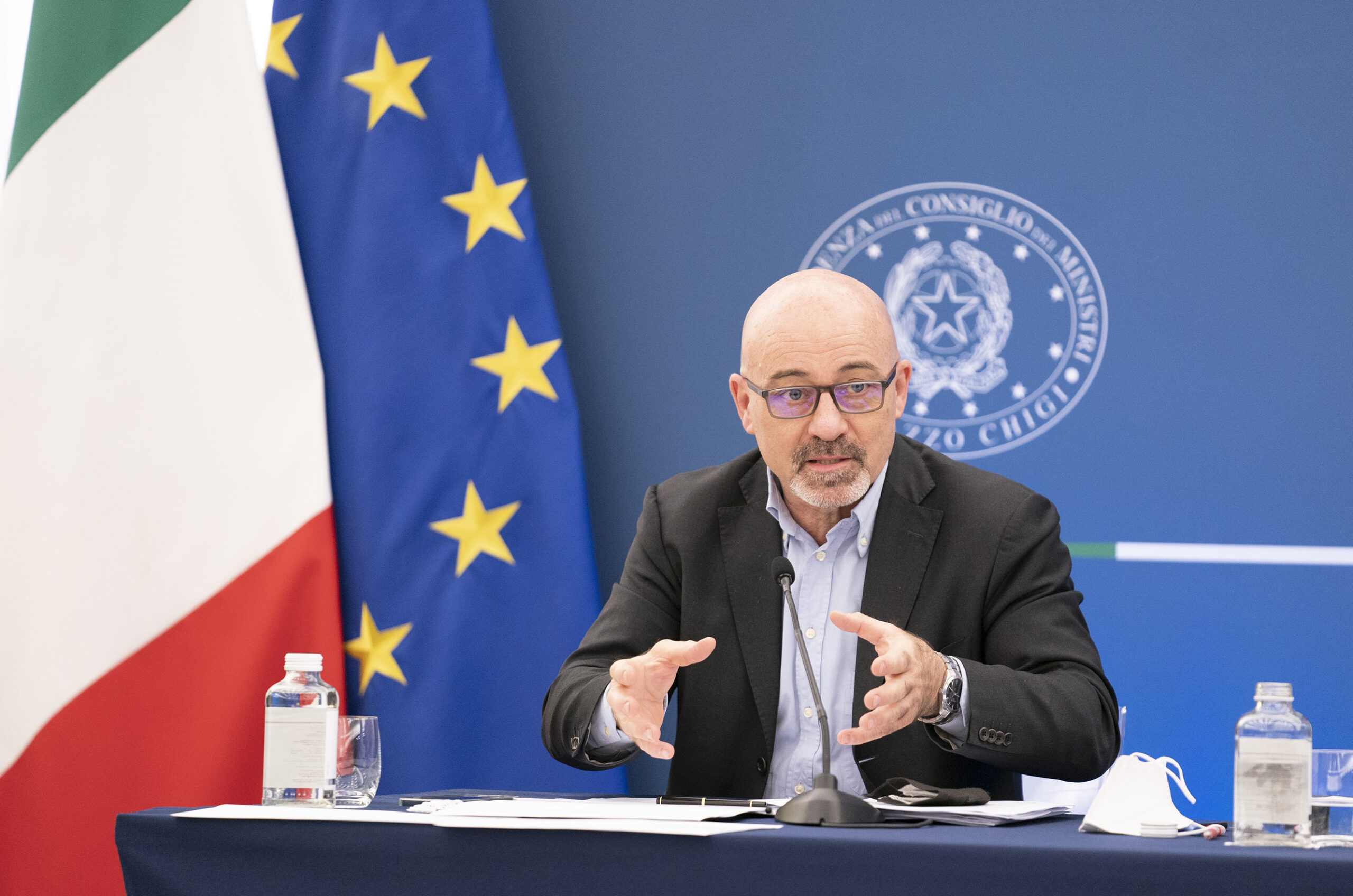I’ll tell you about the gas chaos in Europe and Italy

The German government's plan against high bills and the EU Commission's position on gas. The in-depth study by Sergio Giraldo
The German government breaks the banks and decides to introduce a shield worth 200 billion euros to defend ( sic ) families and businesses from crazy energy prices.
While in Italy they are looking for the change between the lines of the Update of the document on economics and finance (NADEF) and the single word "deviation" provokes mixed reactions, Germany launches its own plan, which could be renamed EEPP (Energetic emergency purchase program), paraphrasing the ECB's notorious pandemic buying program. In fact, the Berlin government will pay for energy on behalf of citizens and businesses that can no longer afford it. How? Putting 200 billion euros of brand new debt on the table.
From Brussels and Frankfurt there did not seem to have been any particular reactions, which instead usually, as soon as Rome whispers something about a decimal, come very fast and severe.
Olaf Scholz, flanked by Christian Lindner, minister of finance and Robert Habeck, minister of the economy, yesterday presented his plan, which provides for a brake on electricity and gas prices for households and small and medium-sized enterprises. No details have been provided on the operation of this device, which should enter into force by December and remain until spring 2024. VAT on energy will be reduced from 19 to 7% and renewable sources and regasifiers will be incentivized. The two nuclear power plants that were to be used as a reserve will remain in full operation. The measures will be financed through a stability fund, already used to save Lufthansa, with the issuance of public debt securities. Minister Lindner said that the maximum debt rule (0.35% of GDP) for this year is suspended, apparently by self-granted pardon, and will be applied again in 2023. The winter will still be hard for German citizens. , which the German energy authority (Bundesnetzagentur) yesterday asked to consume less gas than at current rates.
It is no coincidence that Scholz's decision was made known yesterday, after the Nord Stream gas pipeline was degraded from a source of wealth to a wreck at the bottom of the sea and on the day when the inflation data in Germany was released. , which came in at a shocking 10%. The German government feels encircled and tries to react. It is a pity, however, that the zeitgeist of this era seems to be characterized above all by a generalized save who can.
Today the energy ministers of the member states of the union meet in Brussels to discuss the proposed regulation of the European Commission . The proposal contains the reduction of electricity demand peaks, the ceiling on the revenues of electricity producers from non-gas sources and an extraordinary tax on the profits of energy companies. These issues have been talked about to the point of exhaustion and the document will almost certainly be approved today and then submitted to the final vote on 6 October at the European Council in Prague, amid many smiles and the almost certainty of the uselessness of the measures taken.
The tired ritual of meetings preceded by meetings followed by other meetings continues in that of the European capital also on a non-paper that the Commission has leaked, in which it is argued about a new price reference for liquid natural gas (LNG) and on a roof on the price of Russian gas. On the first point, the Dutch TTF market is considered no longer representative of the real price of LNG imports, which today account for 33% of all imported gas (+ 50% compared to 2021). The Commission therefore intends to create a new benchmark index for liquefied gas prices, using the data that operators must already communicate to comply with the European REMIT regulation on market transparency. These considerations are paired with a previous document from the Commission (see La Verità of 24 September), which intends to create a new market reference for all European gas, bringing the TTF back to its essence as a regional market among many.
The second point refers instead to the imposition of a maximum price for gas imported via pipelines from Russia. The stated aim is to lower revenues for Moscow. The document says that if, at that point, Gazprom by reaction were to completely stop gas flows, Europe would still be able to cope with the winter thanks to storage and solidarity between Member States. Russian gas now accounts for only 9% of European supplies and the only gas pipeline that remains active is the one that, via Ukraine-Slovakia, reaches Italy (about 40 million cubic meters a day, but in certain periods, such as the current, reduced to just over 20). Therefore, the damage deriving from the closure of the pipeline would fall almost entirely on Italy.
In its document, the Commission is very skeptical, if not critical, of the idea of a price cap extended to all European gas. The solution is deemed too complex, financially demanding and destabilizing for the markets. "There is a strong determination on the part of 15 member states" who are calling for the introduction of the generalized price cap and there is a feeling of "nervousness among those member states", says a senior EU official in Brussels. Since we have been talking about it for seven months, the nervousness is justified, even if, it must be said, the position of the Commission on the subject, for once, is not at all unreasonable. Italy is among the 15 countries that most vigorously ask for a generalized ceiling, but the impression is that it will not be satisfied.
This is a machine translation from Italian language of a post published on Start Magazine at the URL https://www.startmag.it/energia/vi-racconto-il-caos-gas-in-europa-e-in-italia/ on Fri, 30 Sep 2022 06:10:23 +0000.
